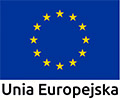The Righteous from the Treblinka area – They died helping their neighbours
They died helping their neighbours. Now nobody remembers it.
The story of the Proczek family from Dąbrowa (the Łaskarzew commune), who died for hiding Jews.
Nobody counted exactly, and most probably no one will ever count, how many Poles died at the hands of the occupants for rescuing Jews. According to estimates, it was not less than a few thousand murdered Poles.
Assistance to Jews was not limited only to food, clothes, medicines, but also to hiding in safe places. This kind of help was burdened with enormous risk. In case of hiding Jews, every person and their family faced the death penalty. There was no question of any court. Finding the hidden Jews meant the execution of the whole family. One such story happened in the village of Dąbrowa.
Gruesome crime
Before 1 September 1939 a few thousand of Jews lived in Łaskarzew and its surroundings. Only few managed to survive the war. In fact, the same can be said about all the pre-war Jewish communities in Poland.
On 9 December 1942, in the village of Dąbrowa near Łaskarzew, a murder of a Polish family hiding Jews, took place. It was the only recognised killing of Poles for hiding Jews in the Garwolin county. It might be said that this German proceeding was standard in such cases. A dozen of military policemen (and probably a few of Gestapo officers) surrounded the farm of Tomasz Proczek and executed him and his entire family. The Germans found two Jews who were hiding there and shot them while they were fleeing.
The Proczeks consisted of seven people. Tomasz Proczek, born in 1874, his wife – Jadwiga Proczek, born in 1886, the eldest daughter Marianna Sięńska (née Proczek, born in 1914), Natalia (born in 1920), their son Stanisław (born in 1923) and the youngest daughter Aleksandra, who was 12 years old. There was also the eldest son, Jan, who had his own family and lived in a separate house but at the same farm.
When the Germans entered their house they killed five of them: Tomasz, Jadwiga, Marianna, Natalia and Stanisław. The youngest daughter, Aleksandra, only survived because she was visiting Nowotniak’s family, their neighbours. The memories of the only survived girl describe that the Germans shot the Proczek family in a backyard. The corpses were left at the spot where the family was shot. According to Jan Proczek’s son, Mieczysław, who as a small child witnessed the execution of his grandfather and his family, the Germans stole boots that belonged to shot Stanisław. The Germans robbed everything that showed any value.
Family secret
When the Germans left the village, the bodies were taken to a barn by the neighbours. Aleksandra, the 12-year-old daughter, was not allowed to see the scene of crime. The burial of the corpses was arranged by the son, Jan, who survived due to the fact that he lived in a separate house. The family was buried in the parish cemetery in Łaskarzew.
Apart from the Proczek family, the two Jews hiding there were murdered as well. We hardly know anything about the family besides the fact that they came from Łaskarzew and they were cobblers. We also known that the family knew them before the war. How long were they hiding there and what were their names we probably will never find out, for simple reason – the fewer people knew about their hiding the safer they were and the safer was the Proczek family. Probably, only the elder members of the family knew about the hiding Jews as it was better not to tell children about such things. How much the secrecy was important shows the fact that Aleksandra, the daughter, did not know anything about this situation.
To illustrate the whole situation, it should be mentioned that at the end of September the liquidation of the ghetto in Łaskarzew began. The Holocaust place for Łaskarzew’s Jews was a concentration camp in Treblinka, but at least a few dozen Jews were killed in the city and in the nearby woods.
The two Jews hidden by the Proczek family were probably escapees from the ghetto. It might have been possible that they had come to the Proczeks earlier. They could have also spent some time in the woods and when winter came Tomasz Proczek gave them shelter. What really happened – we will probably never find out. The witnesses, who could tell us more about them, are no longer alive.
Memories of the survivor
According to a written relation of Mrs Aleksandra Sroka (née Proczek): One Jew was killed while fleeing towards a warble in the woods and he was buried there latter by a village leader, a neighbour, Mr Górka. The second Jew was shot when running in the direction of Uścieniec estate and was buried there.
Their remains could be probably still found in a place of their burial. It is unlikely that anyone dared to dig them out during the war. Moreover, their burial could not take place at the Jewish cemetery as it was destroyed. After the war, it could not be an issue of interest to the communist authorities, so they probably have not been exhumed.
However, one can ask a question: how come that the Germans knew about the hiding place of the Jews. They came in a well-organised way to a particular person at a particular address in the very morning. It is unlikely that they had been observing the village and accidentally discovered the Jews. Unfortunately, in most of such cases, it was a denunciation. The information had to be reliable, so that the Germans decided to come and found the hidden Jews. Perhaps the person who informed on them was offered money and sacrificed the life of seven innocent people for a handful of silver coins. We will never discover the truth.
It is worth remembering
After the war Jan Proczek and his family together with his sister Aleksandra moved to the north of Poland (Pomorze). However, they have not forgotten about the family tragedy. Jan Proczek and his sister built a monument to the memory of their parents and siblings in the parish cemetery in Łaskarzew.
Unfortunately, the cemetery monument is the only memento of the family. Despite the passage of so many years, the memory of the Polish family, who died because they had helped their neighbours, has not been properly honoured. Undoubtedly, some steps should be taken to commemorate this heroic act even in a symbolic way.
Not only the commemoration of the Proczek family should take place but the exhumation and burial of the killed Jews should be preceded. Until today their bodies remain buried in a place of their execution instead of the Jewish cemetery.
In the era of accusing the Poles of anti-Semitism and collaboration with the enemy, restoring the common memory of people who were murdered for helping the Jews, could contribute to the positive image of Poland and the Polish people.
MICHAŁ BOŻEK, Życie Siedleckie, No. 6 dated 6 February 2009





